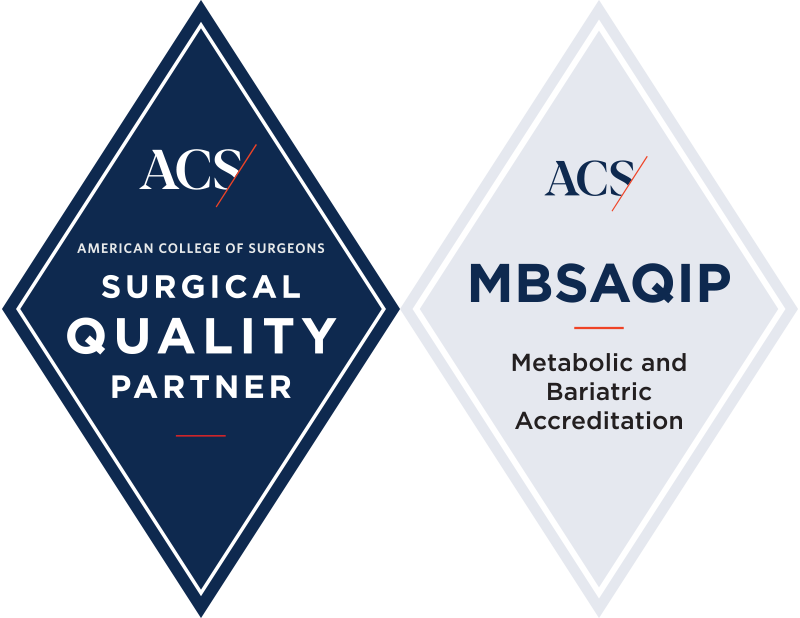Our Bariatric Weight Loss Center in Springfield, Illinois was developed to provide you with comprehensive and compassionate care throughout your weight loss journey. We understand everyone’s journey is different. We combine evidence-based treatment with an individualized approach. Call 447.448.3061 today!

Our Services
Bariatric Weight Loss Center in Springfield
Welcome to Springfield Bariatrics
"We provide comprehensive obesity treatment across the continuum, offering medications and surgery in addition to a strong foundation of lifestyle modification."
Orlando Icaza, MD, FACS, FASMBS, DABS-FPMBS, Medical Director
Your Springfield Clinic Care Team includes:
Bariatric physicians, also known as bariatricians, specialize in the medical treatment of obesity and related disorders. At Springfield Clinic Bariatrics, our bariatricians work with you through all stages of your journey, surgical and non-surgical.
Bariatric surgeons at Springfield Clinic are board-certified general surgeons who have completed specialized training to treat obesity with surgical procedures, such as sleeve gastrectomy, gastric bypass and duodenal switch.
Nurses discuss the pre-surgery instructions, review post-operative expectations and procedures and answer any questions you may have. They teach our pre-op class for patients scheduled for bariatric surgery.
Behavioral health therapists, or licensed clinical social workers, are committed to helping people change their lives for the better. They can diagnose and treat mental, behavioral and emotional health issues. They complete psychological evaluations, lead support groups and see patients one-on-one when needed.
Physical therapists are movement experts who improve quality of life through prescribed exercise, hands-on care and patient education. They complete physical therapy evaluations, teach classes and see patients one-on-one when needed.
Registered dietitians are the food and nutrition experts who can translate the science of nutrition into practical solutions for healthy living. They complete nutrition evaluations, teach classes and see patients one-on-one when needed.
Surgical Treatment
Decades ago, bariatric surgery was viewed as “a last resort” option. With the advent of laparoscopic surgery and accredited programs, bariatric surgery is performed safely and effectively as part of a continuum of treatment for obesity and metabolic disease, such as type 2 diabetes.

Accredited by the American College of Surgeons
Springfield Clinic Surgery Center and Bariatric Department in Springfield is accredited by the American College of Surgeons in their accreditation and quality improvement program. The program helps promote uniform standards and continuous quality improvement while recognizing the excellent work being done by groups like ours. Bariatric surgery is safe and effective in an outpatient setting, Springfield Clinic's Surgery Center is one of fewer than 20 across the nation accredited to perform bariatric surgery in a free-standing ambulatory surgery center. This all translates to shorter OR times, same-day discharge for patients and high-quality surgical outcomes. Learn more about this accreditation.
Surgical Treatments
Gastric bypass
Sleeve gastrectomy
Duodenal switch
SADI-S
Non-Surgical Treatments
Group classes
Intra-gastric balloon
Medications


Why Choose Surgery?
To treat the complications of obesity, such as...
abdominal wall hernia
diabetes
gastroparesis
heartburn
non-alcoholic steatohepatitis (fatty liver)
Let's get social!

FAQs
Medication
Anti-Obesity Medications
The bariatrician will discuss details of specific medication options. Why would you consider taking a medication?
We now have multiple medications that are FDA approved for the chronic management of obesity. These medications may help you maintain the lifestyle changes that lead to a healthier weight.
Using medication in conjunction with lifestyle modification, patients have achieved a 5%-10% weight loss nearly twice as often as without the use of medication.
Different medications may help decrease appetite, decrease the amount of fat the body absorbs or reduce cravings.
Some individuals have more resistant forms of obesity and, even with surgery, may benefit from medications to keep their obesity in remission long-term.
Who is a Candidate for Anti-Obesity Medications?
Individuals who have implemented lifestyle changes without reaching a healthier weight, and
Are regaining weight after losing it, and
Have a body mass index (BMI) of > 27 and a weight-related comorbidity, or
Have a BMI > 30
How Do the Medications Work?
None of the medications create weight loss on their own. You must be an active participant in your weight loss journey, making difficult choices and decisions daily that impact your weight. Using a shared decision-making tool, your team (which includes you) will determine if one or more weight loss medications is right for you.
Each of the above listed medications have side-effects, risks and benefits of use. The information provided here is intended to give you a very basic overview of the types of weight loss medications currently available. Please ask your bariatrician for additional information based on your medical history and current physical condition.
"Lifestyle modification is the foundation of our program. Our registered dietitians, behavioral health therapists and physical therapists work WITH you to design a plan FOR you."
Bryan Kellenberger, MD, Obesity Medicine Specialist
Lifestyle Modification
3 Steps to Take Today
1. Download our App
Download our Baritastic app for Android or iPhone
Enter the code "SCBari" to connect with our program
Begin tracking your meals, water intake and activity
2. Practice Mindful Eating
Set aside time to eat at the table with no distractions
3. Prepare for Change
We follow a "no diet" philosophy. Diets are a temporary means to an end. To achieve and sustain long-term weight loss, life-long changes are necessary. Yes, even with medications and surgery.

Patient Resources
Springfield Clinic Bariatric Patient Resources

New Patient Questionnaire (please download, print, complete and bring it with you to your first appointment)
Downloadable Patient Education
Persuading Your Employer to Cover Obesity Treatment (Obesity Medicine Association)
Navigating Fast Food with Children (Obesity Action Coalition)
Things You Should Know About Compounded Anti-Obesity Medications (Obesity Medicine Association)
Bariatric Support Groups: Why Are They Beneficial? (Obesity Action Coalition)


